Ideas for Talking to Your Children about Zika
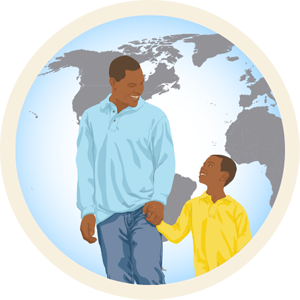
Your children may have heard about the Zika virus disease (Zika) outbreak and may have questions about it. Children can better cope with any disease outbreak when they know more about what is happening and that they can do something to help protect themselves, family, and friends.
It’s important that children understand anyone living in or traveling to an area with risk of Zika may be at risk for getting sick. People who are not living in or traveling to an area with risk of Zika are not likely to get Zika. There are steps we can take to prevent catching and spreading Zika.
By tailoring your conversation to your child’s age, developmental stage, and concerns, you can help him or her understand and cope with the current Zika outbreak.
Start the Conversation
For children of all ages, start the conversation by asking: What have you heard about Zika?
- Listen to see if your children have any fears about Zika.
- Learn what your children have heard and correct any misinformation.
- Let your children know that you are open to answering questions and talking about Zika.
- Limit your children’s exposure to news reports and media on Zika. When they see a lot of information, it may seem like the risk is bigger than it really is.
Explain What You Know Simply and Directly
Here are some facts you can talk about with children.
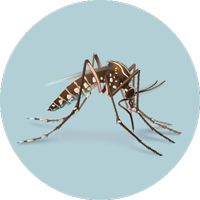
- Zika is mostly spread by getting bitten by a certain type of mosquito.
- Any person that lives in an area where the type of mosquito that spreads Zika lives could catch Zika through a mosquito bite.
- A mosquito that bites a person who has Zika can get infected and spread it to another person through bites.
- They can only catch Zika if they live in or travel to an area where mosquitoes are spreading Zika and are bit by a mosquito carrying Zika.
- Everyone can take steps to prevent mosquito bites to protect themselves and others. Children can help remind adults about taking steps to protect the family from mosquito bites.
- Most people infected with Zika will not get sick. The people who do get sick will probably only feel a little sick for a few days. They might not even know they have Zika.
- People who do get sick with Zika might get a fever, rash, headache, joint pain (like in elbows or knees), or red eyes.
- There is no medicine or vaccine for Zika. If people get sick they will go to the doctor for some tests. People who get Zika can feel better by getting a lot of rest and drinking fluids and taking medicine for pain.
- The government, doctors, health departments, and their community are taking steps to keep everyone healthy.
Gently Correct Incorrect Information and Rumors
- If your children have incorrect information about Zika, give them the correct information clearly, using words they understand.
- Make sure you check facts from reliable sources, such as CDC’s Zika Virus website, your pediatrician, or your state or local health department.
Help Children If They Are Not Coping Well
- Children do not always know how to express what they are feeling in words. Look for cues about whether they are worried by the types of questions they ask. Other non-verbal cues include temper tantrums, irritable moods, trouble falling or staying asleep, changes in appetite, or changes in behavior.
- If they seem worried, encourage them to express how they are feeling and ask questions.
- For very young children: Children even as young as 4 years old may hear about Zika. It’s best that they learn about Zika through a parent or caregiver instead of a classmate or the media. Tell children what is going on, possible ways it could affect them, and what is being done to keep them safe.
-
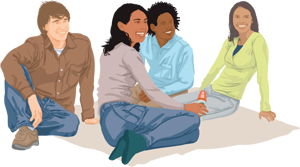
For older children: Grade school children and teens will likely want and benefit from more information on control and prevention of Zika transmission. If children are watching media coverage, consider watching it with them.
Explain to Children What They Can Do to Prevent the Spread of Zika
The best ways to prevent getting Zika are to protect from getting mosquito bites.
- Wear long-sleeved shirts and long pants.
- When not playing outdoors, stay in places with air conditioning and window and door screens to keep mosquitoes outside.
- (If traveling to an area with risk of Zika) Sleep under a mosquito bed net. This is netting that serves as a tent over a bed to keep bugs away while people sleep.
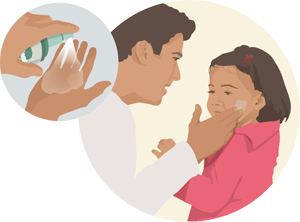
- For younger children: They should not try to put bug spray on themselves. Adults should put bug spray onto skin that is not covered by their clothes. (Adults, please note: Use Environmental Protection Agency (EPA)-registered insect repellents. Do not use insect repellents on babies younger than 2 months old. Do not use products containing oil of lemon eucalyptus or para-menthane-diol on children younger than 3 years old).
-
For teens (children old enough to apply their own repellent): Use Environmental Protection Agency (EPA)-registered insect repellents. It will say that it is EPA registered on the bottle. When used as directed, EPA-registered insect repellents are proven safe and effective.
- Always follow the instructions, and make sure to check them to see if they need to reapply it.
- Do not spray it on the skin under clothing.
- If they are also using sunscreen, they should put the sunscreen on before putting on insect repellent.
Talk to your pediatric healthcare provider if you have questions or concerns about your child or how to talk with him or her about Zika.
Printable Fact Sheet
- Page last reviewed: September 26, 2017
- Page last updated: September 26, 2017
- Content source:



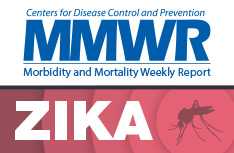

 ShareCompartir
ShareCompartir